Farmers Survey Highlights Poor UK Rural Mobile and Broadband
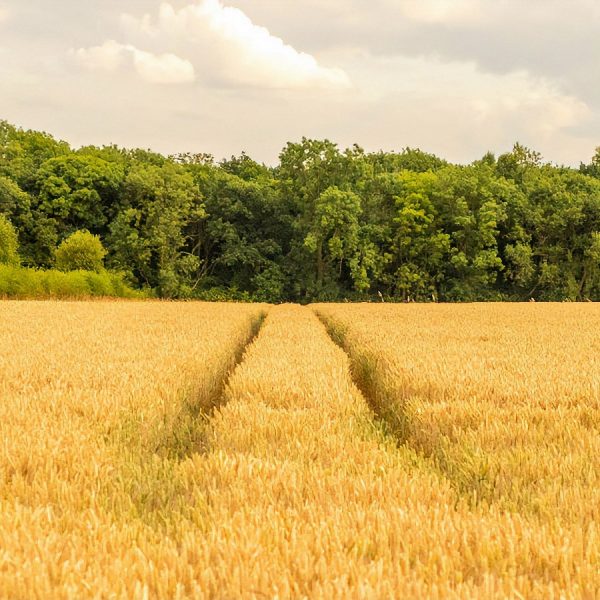
Once again the National Farmers Union has published the results from its annual online and telephone based survey of several hundred members, which found that just 17% of farmers had access to “superfast broadband” (24Mbps+) speeds (up from 16% last year and 4% in 2015) and 15% have no indoor mobile signal at all.
Admittedly farmers tend to work in some of the United Kingdom’s most sparse and remote rural areas, which often end up being last on the list to be upgraded (if they’re improved at all) due to the economic challenges of building expensive networks to cater for so few users over a wide area. As such the fact that they suffer a greater proportion of connectivity problems will come as no surprise.
At present 96.5% of premises can access a “superfast broadband” connection (here), which is thanks in no small part to the state aid funded Building Digital UK scheme and earlier commercial deployments. Meanwhile Ofcom’s recent Connected Nations 2019 report found that the outdoor geographic coverage of 4G services across the UK is still painfully low at 66% from all four mobile operators combined (80% indoor) or 91% from any one of those four operators.
Advertisement
The coverage of both mobile and fixed broadband services has of course improved a lot over the past few years, but this won’t mean much to those who have been left waiting for better connectivity to arrive. Admittedly in some areas it’s also possible that a better service could already exist but the locals may not have realised yet (awareness remains a common issue), although sadly this survey isn’t detailed enough to show that.
Key Findings from the 2019 NFU Survey
Broadband
* 30% have download speeds of 2Mbps or less (down from 42% last year).
* 17% have access to superfast download speeds of 24Mbps+ (up from 16% last year).
* 90% believe broadband is essential for their business (up from 89% last year).
* 36% believe their broadband speed is sufficient for the needs of their business (up from 23% in 2015).
* 26% said slow broadband speeds / poor broadband was a barrier to further use of digital technology (down from 37% last year).
Mobile
* 15% of respondents have no indoor signal at all (better than 16% in 2015).
* 84% of smartphone users have access to 4G (up from 83% last year).
* 41% believe the signal they receive is sufficient for the needs of their business (up from 38% last year).
* 47% of mobile phones owned are internet enabled.
The survey also noted how 38% believe that the government should provide the same service / infrastructure for rural communities as urban ones.
Stuart Roberts, NFU Vice President, said:
“It really is completely unacceptable that in this high-tech digital age we appear to have a two-tier system of haves and have nots.
British farming is first and foremost a business which relies on having fast and reliable access to the internet, yet as our new survey shows more than 4 in 10 of our members feel they still don’t have adequate access to broadband services needed to run a modern-day farming business.
And it’s not just the farming business that’s impacted. A lack of mobile signal can have potentially serious consequences if you need to call for help in an emergency while working alone, and issues of mental wellbeing from feeling isolated can also be affected without having someone to talk to on the other end of a phone.
The current pace of broadband change and mobile connectivity in rural Britain is unacceptably too slow. The introduction of 5G and fibre broadband technology in cities means that, without action, the gap between urban and rural areas will continue to widen. That is why we are urging government and the telecommunications industry to make tackling the lack of rural connectivity a priority.
We will continue to campaign for investment in the country’s digital infrastructure so farming businesses and the rural economy can continue to meet their huge potential not only as food producers but in helping to tackle climate change and deliver on our net zero ambitions.”
The Government would no doubt argue that they’ve already made improving national broadband and mobile connectivity a priority. For example, from March 2020 those in areas of poor broadband connectivity will be able to request a minimum download speed of at least 10Mbps via the new Universal Service Obligation (here), although most of that is likely to be tackled by using 4G based mobile broadband services.
Otherwise the new Government supported, but industry-led, £1bn Shared Rural Network (SRN) aims to extend geographic 4G mobile coverage to 95% of the UK but this won’t complete until 2025. Separately the Government has also committed £5bn to help “gigabit-capable broadband” reach every home by 2025 (here), which has a focus on the final 20% of rural areas; on the other hand this time-scale is very optimistic.
Advertisement
Lest we also forget that the Building Digital UK projects, including various voucher schemes, still hope to extend the coverage of “superfast broadband” to around 98%, although it’s difficult to know quite how close they’ll get to that and when (probably within the next couple of years or so). At present most such projects and contracts today are focused upon fostering “full fibre” technology.
We should add that Wales, Northern Ireland and Scotland have their own projects to improve superfast broadband and full fibre coverage (here, here and here).
Mark is a professional technology writer, IT consultant and computer engineer from Dorset (England), he also founded ISPreview in 1999 and enjoys analysing the latest telecoms and broadband developments. Find me on X (Twitter), Mastodon, Facebook, BlueSky, Threads.net and Linkedin.
« Openreach Add 7 New UK Areas to FTTP Gigabit Broadband Plan
EE and Vodafone Come Top of New 2020 UK Mobile Benchmark »





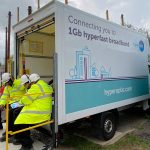

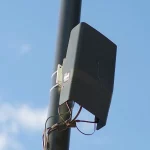



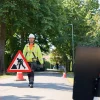

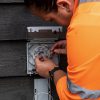








































It should also be remembered as often lone workers, the ability to make phone calls is a safety issue.
My view is that is unrealistic to rely on a mobile signal if safety is the issue. Particularly in dells, ravines etc. Those working in very remote terrain should consider Personal Locator Beacons (Satellite). £200 (subscription free) could save a life.
What we said would happen, has happened. The first two rounds of money was wasted on FTTC to make a few go faster and nothing done for those without. (Apart from areas covered by altnets). It is all part of the superfarce. Farmers need to get behind and support the altnets, they are the only ones who will go the extra mile to reach remote farms and businesses. The altnets deserve free wayleaves.The altnets deserve freedom from fibre tax. The altnets deserve support from government, especially local councils who foolishly give their funding to the incumbent for the more populated areas. Farmers need to unite.
@CC – farmers have had many years to unite, why haven’t they? How many million is the ;few’?
@Chris
Quote “The first two rounds of money was wasted on FTTC to make a few go faster and nothing done for those without.”
That is simply not true! The first two rounds (of BDUK) have already taken coverage of >30Mbps download speeds to over 96% of premises, which is hardly “a few”! In reality it means only a relatively few lack access to such speeds, especially when you allow for 4G coverage as well.
The same applies to your comments about only altnets doing anything, which is also complete nonsense. I see that Openreach has passed over 2 million premises with FTTP, which is more that the altnets’s combined coverage (growing at 26,000+ per week), and of course Virgin’s footprint reaches around 45% or so of UK premises.
It would be good to base your comments on facts for a change!
@CC
the first rounds were not wasted as they went out in VDSL on optimal PCP’s with line lengths that worked.
Where the money was wasted was on the later dribble out of VDSL to ever more marginal PCP’s where the line length distributions were wrong for the technology. But BT was refusing to face facts that more FTTP was needed.
FTTC was worth it in order to get a very cheap upgrade when BT was dragging it heels.
Now the FTTC backhaul can be recycled to FTTP a lot of the effort at money still delivers value.
You will know from my frequent comments that I do believe FTTP is the real solution but something had to be done in the interim. The naughty bit was that the follow on plans from the original FTTC -> FTTP rollout were ditched.
What we said would happen, has happened. You became a parody of yourself.
A_Builder I agree with you – about 10k of the 40k cabs look to be poorly placed – business parks where there is duct, town centres where it a FTTP splitter would have been better and you could still claim the coverage. The upside is that the money is there to reach beyond 98% if the monies available are reported upon and contracted.
On another Forum, there is a BDUK rep blaming Treasury for not re-investing their share of the clawback. Most, most peculiar if true given what is to come.
Chris – your idea is right but if the gap funding and clawback is working then as we are seeing in NI and Scotland it could eventually come good of BDUK orchestrate use the money in the system to orchestrate a final three/four regional procurements in England.
CarlT – I love you work, but your comments on Chris are a bit OTT. BA4N deserves huge praise. I hope you can join a campaign to remove Lord Livingston from the House of Lords, for investing only £1.3bn (49k cabs includes most opex) of the £2.5bn he promised to invest while at BT. The latter would have included much FTTP if the PR was inaccurate. This is before we investigate the location and timing of BT’s £500m contribution (of the £1bn match promised to the HOL in 2012) to allowable costs in rural. The reporting on this is outstanding. Memorial services are being used, including the attendance of public officials at such services to enforce OMERTA on this matter.
@NGA – ‘This is before we investigate’ Who is the ‘we’? I think you mean you. Or are you still claiming to be part of an ‘organisation’ rather than a ‘one man band’?
@NGA “about 10k of the 40k cabs look to be poorly placed – business parks where there is duct, town centres where it a FTTP splitter would have been better ”
VDSL cabs have to be within 50m of an existing copper cab (or have a new copper cab added in, or use an “All-in-One” VDSL+Copper cab).
Existing copper cabinets are where they were placed long before Broadband. so their location (along with the VDSL cab) was fixed unless you want to add new build and circuit re-arrangement with the subsequent extra cost.
Additional cabs have been added, but are bound by local authority agreement and wayleaves. If a business park or town centre is served by an existing copper cab then that cab has to be commercially viable either to Openreach or BDUK, and could in any case be unbundled by an altnet using Sub-loop Unbundling if that altnet thought they could make it viable. Additionally you can’t “just drop in” a fibre splitter without all the supporting network and exchange infrastructure which would incur additional costs.
So I’m not sure how relevant your statement is in the real engineering world.
Gadget.. the real world?.. There 13 subsidised cabs in Cambridge Science Park. The whole park is fully ducted. The BT excuse I was given for a park in Norhern Ireland was.. ‘we had to collapse the ducts to keep the mice out hence the cabinet’.. this is the level of argument being used to deny some upgrades.
@NGA – So, just to be clear have Cambridge Science Park cabs have been upgraded to FTTC as part of a BDUK contract – if so why did the local authority accept FTTC and not mandate FTTP? If the copper cabs already existed why didn’t an altnet sub-loop unbundle or even run their own fibre using Duct Access product?
Are we only talking about 14 cabs on your radar out of, what, how many thousand?
@NGA – Opposite the Science Park and in part, or all, there is Virgin Media. Vodaphone have built opposite, but not in it. Maybe VM meeting requirements.
Gadget .. LDP unlikely to be given the option. BT protecting private circuits! Business Parks .. about 2,000 ..you are in a better position to count. Why unbundle when there is duct available and power costs avoided – abuse of commercial confidentiality. The high streets count will be larger. This ought to appear in a lesson learned report.
Facts.. locating cabs – incurring power cost where duct us available is BT Group damaging Openreach for some short term quarterly objective rather than building long term earnings. The power costs in these instances are 100% waste and breech the first lesson of keeping complexity to a minimum.
NGA – From the start R100 lot 1 mandated gigabit fibre for certain specific areas so a) it can be done by the LA and b) it has been done by the LA. Also nothing to stop LA adding either postcode or uprn data within Business Parks to its tender.
How does confidentiality come into it – if another operator wants to either unbundle or duct share then it is nothing to do with BDUK commercial confidentiality, and, I would expect Openreach to absolutely respect the isp’s confidentiality of locations and plans under the General Conditions of Openreach’s licence.
Gadget – R100 LOT 1 is not phase 1 the ~5,107 subsidised cabinets you have already done in Scotland. Commercial Confidentiality has kept BT’s capital contribution to allowable costs secret. The timing of these payments are critical. If BT cash goes first or is transparent in the planning cycle you get a different answer to if BT contribution is reconciled 18 months after the contract where relationship managers can attempt to claim more opex.
SLU and duct and pole sharing not really an option until recently. Callserve (new name) the only one to get some working.
It needs to be transparent so the books can be balanced. It would also help if the planning rules of FTTC and FTTP were published.
NGA – Warwicknet was also around for a long time although recently rebranded to Glide – in fact AFAIK apart from Digital Region it was one of the first isps to use SLU. They were granted code powers in 2014 https://www.ispreview.co.uk/index.php/2014/08/warwicknet-plans-broadband-network-expansion-via-uk-code-powers.html
Gadget .. the might of BT pointing to Warwicketnet?..
NGA – not at all just expanding your knowledge
Gadget .. I am overwhelmed.. but appreciate the miss selling of private circuits to solve the Broadband distance problem has been complicated by the mis-use of BDUK vouchers.
Sadly its not just remote farmers, Buckie is a Town with circa 10,000 population and you get Zero to possibly an iffy 1 bar mobile coverage Outside the Tesco store on O2. Mast deployment locations aren’t optimal in many areas.
The Farms out of town like mine get better mobile coverage than much of the town as we’re open to the next transmitter along the coast.
Farming first and foremost relies on Internet access?
Wow. Service industries are getting everywhere.
Translation: More taxpayer subsidy please.
CarlT
I suggest you stick to commenting on stuff you know something about.
I thought it was quite a good comment myself. And quite accurate.
And unfortunate that farmers are being increasingly forced online just to survive.
It is a symptom of a society that is completely bonkers with very strange values
Oh bring back the simple farmer…
CarT ..in this case we are just chasing the subsidy that already exists and is owed so 17% of the 6m rural can be completed.
We need to get used to the idea that this will be done using full fibre. There will be extremes at the edge but we are still finding these.
Salut all work in Huntslett.
@Carl : The others are right. These days farming does require tech more and more to do even the most basic things.
I agree that some subsidy is required to ensure all rural communities have access to Giga connectivity to back haul capacity but when it comes to farmers there is a lot they can do themselves, they are after all businesses. Small holder tractors can cost £30k and large tractor units can be over £100k so lets get the relative cost of their broadband into perspective.
Ideas include;
Getting broadband provision to the edge of their land (solar powered Router) and lay their own fibre to their home and buildings (reducing line length increases DSL speeds and will also make their farm more likely to cost in to fibre provision)
Use cabled External WIFI access points to cover the main farm
Buying mobiles that support WIFI Calling
Consider Two Way Voice and Data Radio systems where farm is not totally covered by a mobile signal
and of course there is always Satellite.
For remote worker safety use Personal Locator Beacons
The NFU should do more to make farmers aware of what is possible and how to address their issues rather than moan and expect consumer based network subsidies. There is a lot of press releases and little actual advice on their web site regarding broadband.
@Meadmodj, I entirely agree that subsidy is required to get connectivity to rural areas – when a 30/30 leased line costs £550+VAT per month it just isn’t affordable (it is much cheaper in urban areas, but not many people seem to realise just how much cheaper). I know farm machinery costs lots – but that is leased over very long periods, or rented. Most farms operate on very slim margins.
I do think that suggesting that farmers should build their own broadband if they want (need) to use the internet to be like suggesting that you should grow your own food if you want to eat. Some people can and do, others stick to their specialism.
@Meadmodj
The idea of “Getting broadband provision to the edge of their land” has to be worthy of consideration. Not sure the solar powered router option would provide enough of a speed uplift to warrant the cost but for future connectivity options, if it meant more farms (or very rural properties) at the edge of the network became viable for FTTP, it has to be worth exploring further. If broadband is as important to some, this would at least give them the option to help themselves and dig the trench and install the ducting on their own land. I would definitely do this as would many others I know who are still on very slow connections.
As always horses for courses. My swipe is more aimed at the NFU than the individual farmers. I just think we need to be pragmatic and provide suitable guidance to what is out there. I am sure there are suitably IT literate support locally but don’t under estimate the farmer there is a lot of tech on farms. Armoured fibre is about £1m per metre but the long lengths involved here will be much much cheaper. Multi span OH can easily kill off DSL speed so for some it could be the difference. If Fibre too expensive then directional WIFI repeaters.
If I was a remote farmer I would play the forthcoming USO card as it applies to homes and businesses. If USO cannot be provided by 4G it will inevitably be FTTH and higher option products would be available.
My view is that this survey doesn’t just highlight what we know regarding rural broadband but more a lack of awareness of what solutions already exist.
I’m not sure the USO will help – there is a cap of £3400, which won’t touch the cost involved.
I suspect that 4G and in some cases fixed wireless may help, but there isn’t currently any guidance in finding such solutions. I think the BDUK bodies should provide help, but they (or at least the one in my area) don’t (they will help with using Facebook and twitter, bit not with actually getting a connections. I think the BDUK bodies should provide help, but they (or at least the one in my area) don’t (they will help with using Facebook and twitter, bit not with actually getting a connection).
Facts .. sorry .. I am a nobody.. and I will involve another select committee if needed making a ‘we’. I might even get lucky and get Ofcom to prove a uniform Capital Contribution to validate any cost recovery process they propose. Do not hold your breath on the latter. nearly got there in 2017, the worksheets were readied but not used.. you can download them.
It would appear BT have a lot to gain if it means Treasury, instead of recovering clawback (charged as a cost on the network) get to invest these funds in the network. That is win win.
@NGA
Mike, I do not believe that you have the power to either convene a Select Committee or determine its agenda as this is something reserved for Parliament. Unless of course you’ve been elected recently …..
‘Involve’ ..perhaps request would be better is just a gentle prod to say an attempt will be pursued if the opportunity arises. Convene is something different but this has got further than I expected.
Note the 2017 EFRA inquiry got adjusted from Tourism to Tourism and Broadband. The M Ritchie (SDLP) question on re-sue of clawback, (batted away by BT and DCMS) led to the inclusion of Broadband in the DUP election agreement by a fellow SC member. An earlier attempt to get some of what Treasury is now taking back re-allocated failed, but third time lucky. It is not clear if NI Audit will ever report on BT’s capital contributions but they may have another go.
We are getting closer to the truth now but there is a little bit to go.
Actually Farmers and landowners have stoppwd and hindered mobile mast roll-out and lengthy wayleave issues and trying to stop cabinets in my area,pulling out of planning applications at the last minute, so they’ve only themselves to blame, which obviously they don’t seem to concerned with being without internet or calls.
@New_Londoner
Well I know someone who is one of the (un)lucky ones who cannot get 24Mbs, on VDSL, due to DSLAM mis-placement.
They tried 4G, yippe 35Mbs, groan not for long, down to 4Mbs.
In the sticks, no in a town up North.